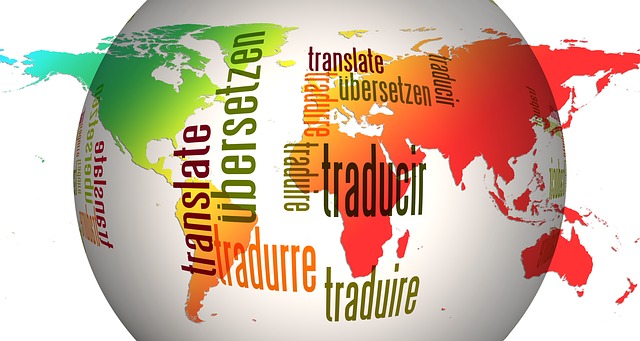(Machine) Translation is becoming an important tool for communicating within the organization and across the world. More and more businesses are embracing it, so much so that translation itself is on the verge of becoming a trend.
Hiring a freelancer to do the work for you, or a professional agency is a common and conventional choice. But, with the technology reaching a new peak and the machine learning evolving, machine translation has also gained popularity.
It is becoming a common choice, given the convenience that it provides. You will actually find most people relying on apps like Google Translate for basic translations (although there is still a lot to gain here).
The Rise of Machine Translation
Are machines capable enough to replace humans? This has been the question for science fiction for a very long time but is now setting grounds in reality as well.
The convenience that machine translation provides, made it a very appealing choice over the course of recent years.
It is a simple conversion of words from one language into another. Theoretically, this doesn’t require any further human input. But anyone who has used it knows that is not the true picture.
Big companies are investing in evolving the machine translation like Google further expanding with 13 languages and Skype adding real-time Arabic translation to the list.
And for the businesses that are short of budget, this doesn’t seem like a half bad choice.
While there is no denying the cost-effective superiority that machine translation holds over human translation, it is not the best choice, especially if you have to translate a document as complex as an eBook.
Why Machine Translation is Not the Right Choice?
Machine translation, no matter how evolved, cannot replace human translation. Opting for a machine translation for an eBook would be a mistake. Here are some of the reason why it could go wrong.
Machines Don’t Have an Understanding of Culture
When an eBook is written for a certain target market, it has culture inculcated into it. It is impossible for a machine to detect or understand that (at least at this time 2019).
The efficiency of the machine comes to a halt when it encounters the idioms, slang, or even the names in most cases. Not only does it fail to recognize it in one language but also fails to successfully instill that of the target language.
This is the kind of problem that the machines can not overcome at this time, it will definitely be hard for them to even try.
Imagine having an eBook in which you’ve put so much hard work turning into a bunch of blubber words that don’t make sense whatsoever.
While this is the problem with machines, the human native translators are well-aware of the languages, all the slang, idioms, and the culture that comes with it. Or at least they should be.
Sometimes, the same word has one meaning in one language and has an entirely different meaning in the other. Only human translators are able to detect such minute details that the machine is unable to pick out.
Machine Translation and Context Don’t Go Hand in Hand
Let us take the word “tear” to understand this point.
The word tear in English has three possible meanings.
- A tear in clothes
- The act of tearing apart
- The tear a person sheds
One word, three meanings. How to decide which meaning is used in the sentence in question. This is where context jumps in.
- “The tear in his shirt was visible.”
- “The tiger was about to tear him apart.”
- “A single tear slid through his eye.”
Now you can clearly guess the meaning of each tear used in the sentences used above. The problem with machine translation is that it cannot do so. It has no sense of the context of the sentence.
And since there are words, in every language, that have more than one meaning. When faced with such a sentence or word, the machine translation fails to judge the word that is to be used in the respective sentence.
On the other hand, it is very easy for a human translator to detect the meaning and understand the sentence.
If you trust your eBook translation with a machine, it inevitable to end up with an inconsistent translation that may or may not make any sense.
Machines Don’t Stay Up-to-Date
Languages are evolving by the second. There are new and newer phrases being developed and introduced in the streamline.
To translate effectively, the translator needs to stay up-to-date about these developments.
The problem with the machine translators is that they are unable to pick on these trends in time for an effective translation. It takes several times for the work to come up for them to pick up on it.
Often they are dependent on the companies to be updated and maintained. Which means that they are out of the “constant learning” cycle.
A human translator, however, picks up these new phrases pretty quickly. Even if they cannot exactly understand the new phrase, they can always deduce the meaning through context.
Machine Translation is Unable to Replicate Tone and Style
An eBook has a certain writing style and a tone to it. It may be persuasive, funny, or even poetic.
When you translate your eBook, the main goal is to preserve that essence. Unfortunately, machine translation fails to do so.
The tone and style are important for the reader to understand the message that is being conveyed. If that is removed then the meaning is lost as well.
It takes a human translator, to translate an eBook so that it has the same tone and style. A machine translation can only produce something flat, and potentially rendering it meaningless and soul-less.
Final Word
While machine translation is becoming popular, it has many limitations at this moment. These hurdles affect the translation of your eBook and most likely the translation would not be up to your expectations.
Only a human translator can create a translated document the way it is meant to be. They understand the context, culture, and new phrases, while also maintaining the tone and style used in the original document.
Get a Taste of How Chris Presents, Watch his TEDx Talk
 Call Direct: +32476524957
Call Direct: +32476524957
 European Office (Paris) Whatsapp: +32476524957
European Office (Paris) Whatsapp: +32476524957
The Americas (USA; Atlanta, GA; también en Español): +1 678 301 8369
Book Chris Smit as a Speaker
If you're looking for an Engaging, Exciting, and Interactive speaker on the subject of Intercultural Management & Awareness you came to the right place.
Chris has spoken at hundreds of events and to thousands of people on the subject of Cultural Diversity & Cultural Competence.
This is What Others Say About Chris:
- “Very Interactive and Engaging”
- “In little time he knew how to get the audience inspired and connected to his story”
- “His ability to make large groups of participants quickly and adequately aware of the huge impact of cultural differences is excellent”
- “Chris is a dedicated and inspirational professional”
In addition, his presentations can cover specific topics cultural topics, or generally on Cultural differences.
Presentations can vary anywhere from 20 minutes to 2 hours and are given worldwide.
Book Chris now by simply sending an email. Click here to do so.
Read more about what Chris can do for you.
- Percentage of People Rating a Presentation as Excellent 86%
- Rating the Presentation as Practical 89%
- Applicability of Chris' presentation 90%
About Peter van der Lende

Peter has joined forces with Culture Matters.
Because he has years and years of international business development experience joining forces therefore only seemed logical.
Being born and raised in the Netherlands, he has lived in more than 9 countries of which most were in Latin America.
He currently lives in Atlanta, Georgia (USA) with his family.
You can find out more at https://expand360.com/
Or find out what Peter can do for you here.
- 192 Cultural Differences and Franchising with Adam Goldman - 11 June 2025
- 191 Coffee Culture with Martin Mayorga - 3 April 2025
- 190 Collectivism in Western Culture with Rob Lion - 19 March 2025



 Call Direct: +32476524957
Call Direct: +32476524957 European Office (Paris) Whatsapp: +32476524957
European Office (Paris) Whatsapp: +32476524957
nice one keep posting